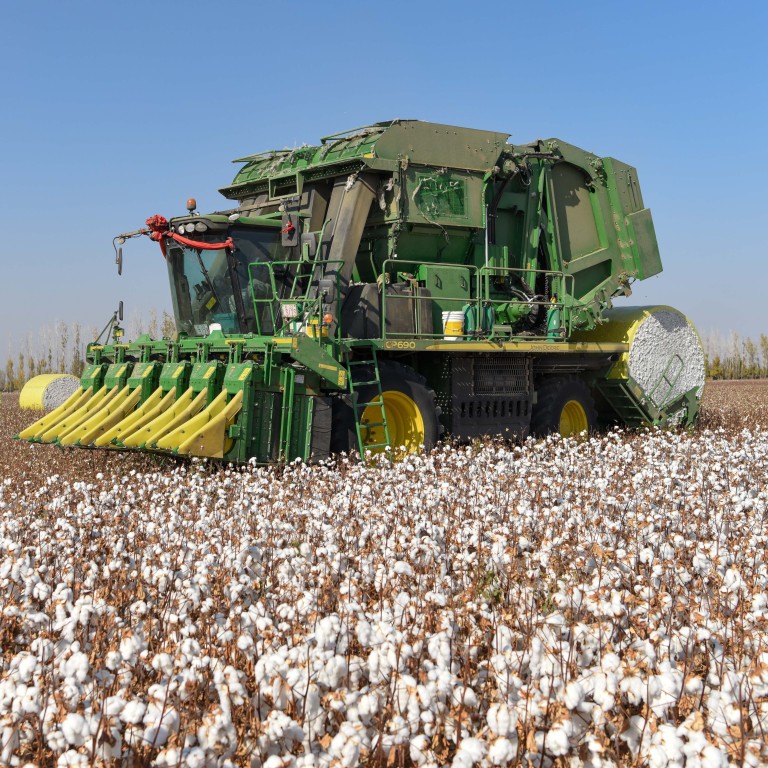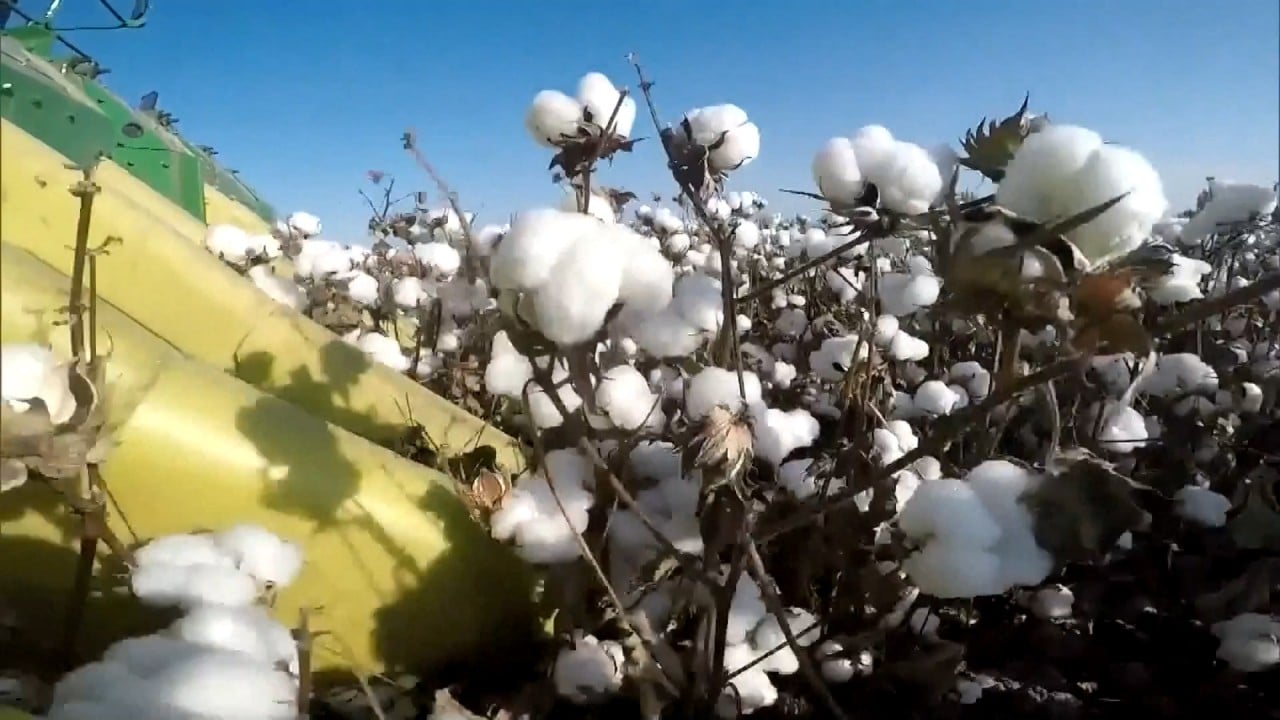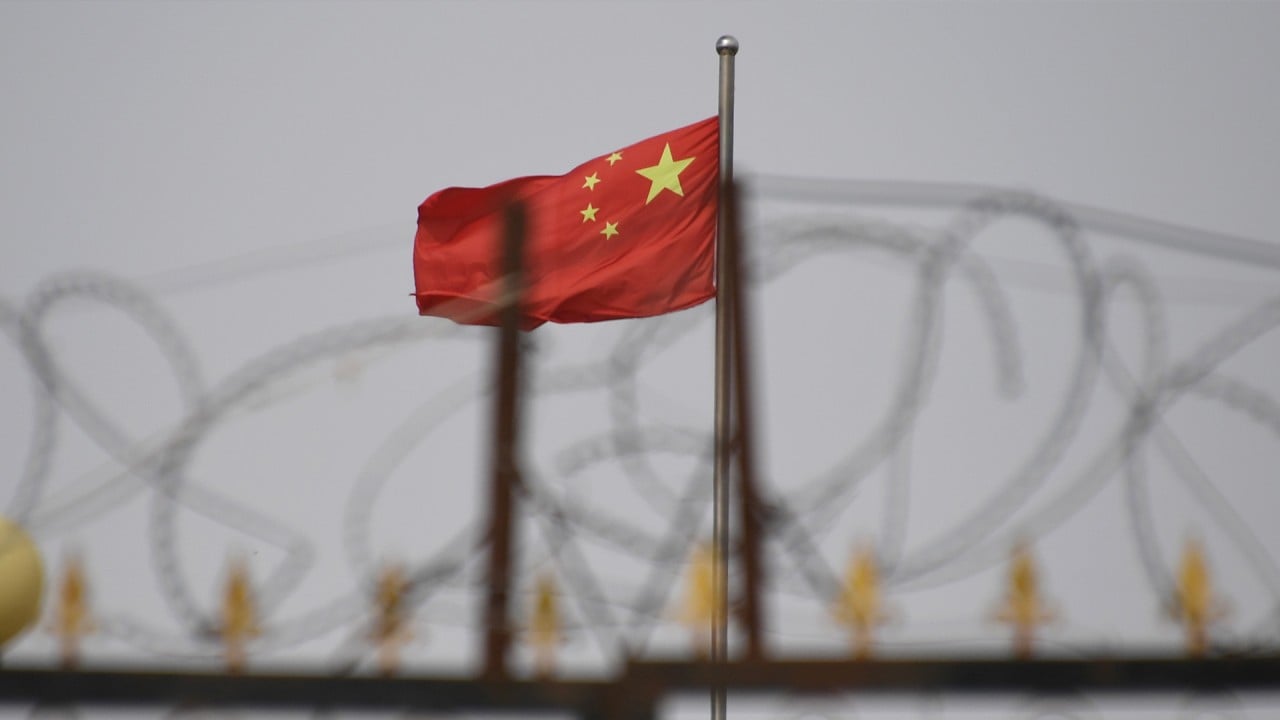
Chinese branch of Better Cotton Initiative challenges headquarters and says it has found no evidence of Xinjiang forced labour
- State media tries to highlight rift as Beijing seeks to challenge claims of human rights abuses in region
- International fashion brands, including H&M, have been hit by calls for a boycott over decision to stop using Xinjiang cotton
The rift between the Better Cotton Initiative’s headquarters in Geneva and the Shanghai branch, whose claims were heavily promoted by Chinese state media, highlights the difficulty international organisations face when dealing with sensitive topics such as Xinjiang and Hong Kong that Beijing insists are purely internal matters.
In a report aired by state broadcaster China Central Television on Saturday, Wu Yan, the head of the BCI’s Shanghai branch, said: “In response to overseas claims about forced labour concerns in Xinjiang, we have repeatedly conducted stringent inspections and submitted two of our investigation reports and compiled years of reports from third-party visits.
“We have also repeatedly told international non-government organisations as well as other stakeholders that we haven’t identified one single case of forced labour.”
China produces 22 per cent of the world’s cotton, of which 84 per cent comes from Xinjiang, according to a report by the US-based Centre for Strategic and International Studies.
Last year the BCI’s central office said independent research had corroborated its own conclusions that there was an increasing risk of forced labour on farms in Xinjiang.
Two statements, issued in October and December but since deleted from its website, also said that it had stopped licensing Xinjiang cotton production last March and had stopped field-level activities in China in October.
But the Shanghai office published two statements on the Chinese social media platform WeChat this month saying it had not found any evidence of forced labour in Xinjiang since audits began in 2012.
When asked for comment, Joe Woodruff, BCI’s London-based communications manager, did not address the contradictory positions but said the group had a “constructive dialogue” with stakeholders in China.
Huawei removes Nike and Adidas from its app store amid Xinjiang boycott
“BCI is committed to promoting sustainable agriculture everywhere cotton is grown, including in China. In partnership with qualified local actors, we run field programmes which aim to deliver positive, measurable change to the environment and to the livelihoods and well-being of farming communities,” Woodruff said.
“In China, we are currently focusing our efforts on the provinces of Hubei, Hebei, Shandong and Gansu. BCI supports over 100,000 smallholder farmers in these provinces. We are engaging in a constructive dialogue with all interested local actors across China.”
Wu has not responded to requests for comment.
After the BCI stopped licensing Xinjiang cotton production, its members, including H&M, Nike, Adidas and Burberry, all said they had stopped using cotton from Xinjiang in line with the group’s guidelines.
Is this the next Xinjiang product to upend global supply chains?
The CCTV report and a story in Global Times, a nationalist tabloid, also tried to blame human rights organisations and Washington for manipulating the BCI.
Liu Haoran, a project manager at the Shanghai branch, told CCTV that “human rights groups have asked the BCI to suspend Xinjiang cotton licensing” but did not present any evidence.
Fan Di, an assistant professor with Hong Kong Polytechnic University specialising in fashion retail and marketing, said he was shocked to see such a severe internal divide within the BCI, which was designed to minimise the risk of corporate social responsibility scandals.
“This method has backfired on the brand names and exposed them to even greater political maelstroms,” Fan said.
Fan said the international firms should have conducted their own independent audits and carried out first-hand investigations rather than relying on a third-party service supplier like the BCI.
Fan said he could understand the “strategic considerations” behind the decision to suspend licensing for Xinjiang cotton before the controversy affected supply chains.
“With inadequate information to make an informed decision, they might think it’s better to suspend Xinjiang’s cotton assurance before it’s too late,” Fan added.
Frank Hoffer, a research fellow at the Global Labour University and a former International Labour Organization official, said investigating and verifying allegations of human rights violations would be difficult and sensitive in authoritarian countries.
“Investigators may face limits on their movements and workers are likely to be hesitant in speaking up as they might be fearful or intimidated,” Hoffer said.
Hoffer said the BCI’s Shanghai office would also have considered the repercussions on speaking out about forced labour.
“It’s a judgment call in terms of what can still be done under the given political circumstances,” he said.
Washington condemns China’s ‘baseless sanctions’ over Xinjiang
Human rights groups, the United Nations and victim testimonials have accused China of detaining about a million Uygurs and other Muslim minorities in camps, where they have allegedly been subjected to indoctrination, torture and forced labour.
US Secretary of State Antony Blinken and a motion passed by the Canadian parliament have both described Beijing’s policies in the region as “genocide”.
China denies the allegations and insists the camps are used for vocational training and to counter extremism.
Additional reporting by Linda Lew




